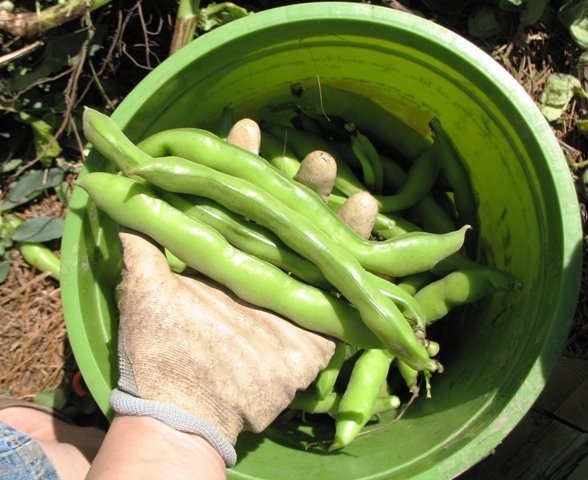Plant Nutrient Profile: Phosphorus
July 11, 2013
Fertilization and plant nutrients are often a mystery for many newbie gardeners...and experienced gardener's alike. While I find soil biochemistry and nutrient analysis fascinating, I'll bet that my soil chemistry books would substitute for sleeping pills for most. I get so many questions about fertilization and plant nutrients, I thought I'd start a series of plant nutrient profiles in order of importance.
The second in the series is: Phosphorus (P)

What does Phosphorus do? Phosphorus encourages strong root systems and tubers; but it also assists in overall general health and fruit production by converting the sun's energy and nutrients into usable plant food. A Phosphorus deficiency leads to stunted, sickly looking plants and a lower quality fruit or flower. Phosphorus deficiency is not a huge problem in the home garden, but it is key to food and agricultural production. Think of Phosporus as something you'll mostly need to add in the vegetable garden. In certain soils Phosphorus may be plentiful, but bound up by soil particles and unavailable to plants. This is common in our heavy clay soils in N. Texas.
Often you'll hear recommendations to add no Phosphorus to your soils because there is already an excess (the water-soluable form of Phosphorus can be a big environmental and water quality problem.) But again, while you may have high levels of Phosphorus in the soil, it may not be available to your plants. Phosphorus exists in both organic and inorganic forms in the soil. Adding organic matter and stimulating microbial life can aid in the natural availability of Phosphorus. Soil microbes break down Phosphorus from its organic form to the inoranic form that is taken up by plants.
When do I use Phosphorus? It's best to use fertilizers that include Phosphorus on new plantings to encourage healthy root development. You can also apply in fall to the landscape to encourage root development over the winter. Animal manures provide Phosphorus and stimulate microbial growth, so they can often be a good soil additive for your landscape and vegetable garden; and a more desireable substitute for highly concentrated synthetic forms of Phosphorus.
So, to keep it simple: Phosphorus = Roots & Tubers

